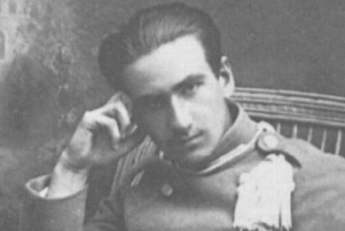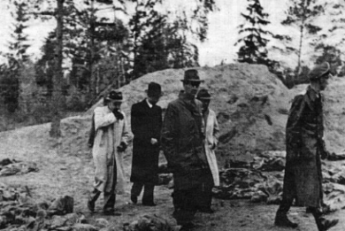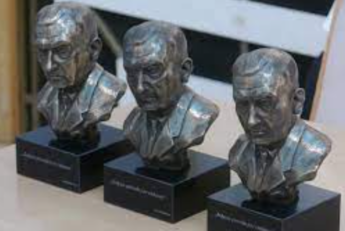
A writer who was wanted to be forgotten
“Józef Mackiewicz was deliberately kept silent for many years, in fact he was absent from Polish culture in the times of the People’s Republic of Poland, because he had and preached anti-communist views,” said Stanisław Michalkiewicz, secretary of the Chapter of the Literary Award of Józef Mackiewicz. As a writer inconvenient to the authorities, Mackiewicz was kept in silence for many years and we learn about the facts from his biography in detail only nowadays.
The writer’s favorite expression was “only the truth is interesting.” Mackiewicz did not succumb to the influence of the authorities, did not distort facts and events, he described everything as he saw and felt. He was not afraid of his anti-communist attitude and criticism directed at the communist authorities. Compared to others, he distinguished himself by his independent way of thinking and obvious opposition to the communist regime. Undoubtedly, even more than 30 years after regaining independence, the writer may still have many enemies.
“He is undoubtedly one of the greatest Polish writers of the 20th century. I believe that this mutilation of culture needs to be made up for and I strongly believe that Józef Mackiewicz will soon take a worthy place in the pantheon of merits for Polish culture”, S. Michalkiewicz shared his observations.
The inhabitants of Vilnius and the Vilnius Region, and even the inhabitants of Poland, still know little about Józef Mackiewicz. It happened as a result of keeping the figure secret by the authorities then. The author of the novel “Droga donikąd” was inconvenient for the authorities, so they tried to prevent his presence in Polish culture in all possible ways. Only after Poland regained independence, the work of Józef Mackiewicz began to regain its proper place and its cultural and historical value, not only in Poland, but also in the Vilnius region.
Unfortunately, there are still no Lithuanian, Belarusian or Ukrainian translations of the writer’s work, which significantly contributes to the limited availability and lower recognition of the author on the literary and cultural markets. There is a probability that if there were more translations of Mackiewicz’s works into local languages in the above-mentioned countries, it would facilitate the processes of transformation and overcoming post-communist addictions in countries in the post-Soviet areas. It would be possible thanks to the facts gathered in the pages of Mackiewicz’s novels and his anti-communist attitude.
After regaining independence, the world learned not only about the works of Józef Mackiewicz, but also about the importance of his contribution to the history and culture of not only the Vilnius region, but also Poland. The topics taken up by the writer are not standard and to a large extent contribute to building historical awareness and memory.
In 2002, in order to commemorate the figure and work of Józef Mackiewicz, writer and political activist, the Literary Award of Józef Mackiewicz was founded. The prize is awarded to Polish authors for books that popularize Polish culture, history and tradition especially. The founders of the award are entrepreneurs Jan Michał Małek and Dorota Boether (formerly Zbigniew Zarywski). The prize is awarded annually and the announcement of the results and the award ceremony are held on November 11.







